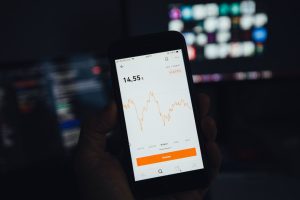Forex trading is a 24-hour market, allowing traders to buy and sell currencies at any time of the day, from any part of the world. However, not all trading hours are created equal. Some hours are more volatile and liquid than others, while some hours are characterized by low activity and slow price movements. As a forex trader, it is crucial to know when to trade and when to stay away from the market. In this article, we will discuss the times to avoid trading forex.
1. Weekends
Forex trading is closed on weekends, and there is no trading activity during these days. It is advisable to avoid placing any trades on Friday afternoon, as the market tends to be choppy and volatile due to traders closing their positions before the weekend. Moreover, the forex market opens on Sunday evening, which can lead to gaps in price action that can wipe out traders’ accounts. It is best to wait until the market stabilizes on Monday before entering any trades.
2. Public Holidays
Forex trading activity tends to be low during public holidays, as banks and financial institutions are closed. Trading during these periods can be risky, as liquidity is low, and spreads are high. It is advisable to check the economic calendar and avoid trading on days when there are major public holidays in the countries whose currencies you intend to trade.
3. Overlapping Sessions
During the forex market’s overlap sessions, there is a lot of liquidity and volatility, making it an excellent time for trading. However, it can also be a tricky time for traders, especially beginners. The overlapping session occurs when two major trading sessions overlap, such as the London and New York sessions or the Tokyo and London sessions. During these times, traders need to be cautious as there can be sudden price movements due to increased trading activity.
4. Low Trading Volume
Low trading volume can be a challenging time to trade forex as it can lead to volatile price movements and wide spreads. Low volume usually happens during the lunchtime period, holidays, and weekends. It is best to avoid trading during this time as it can be challenging to get into or out of a trade due to low liquidity.
5. Economic Releases
Economic releases such as interest rate decisions, employment data, and inflation reports can create significant volatility in the forex market. It is best to avoid trading during these times as the market can be unpredictable. Traders should wait until the market stabilizes before entering any trades to avoid getting caught in a sudden price movement.
In conclusion, knowing when not to trade forex is just as important as knowing when to trade. Avoiding low liquidity periods, public holidays, weekends, overlapping sessions, and economic releases can help traders protect their accounts and avoid unnecessary losses. Traders should always check the economic calendar and be aware of any potential news releases that could impact the market. By following these guidelines, traders can improve their chances of making profitable trades in the forex market.





